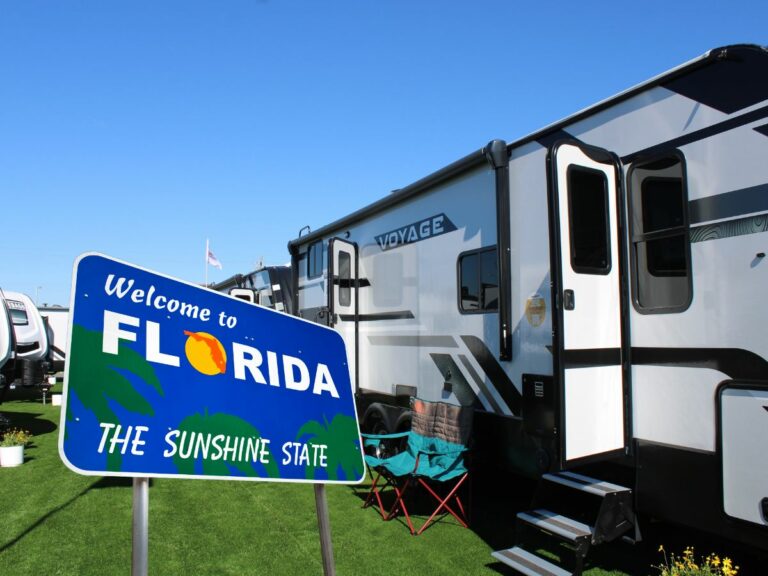This post may contain affiliate links. See our affiliate disclaimer here.
Found your ideal RV, but it is hundreds or thousands of miles away in another state? Don’t fret. In this guide to buying an RV in another state, I’ll help you decide if traveling to purchase an RV is a good idea for you.
Contents
Is Buying an RV in Another State a Good Idea?
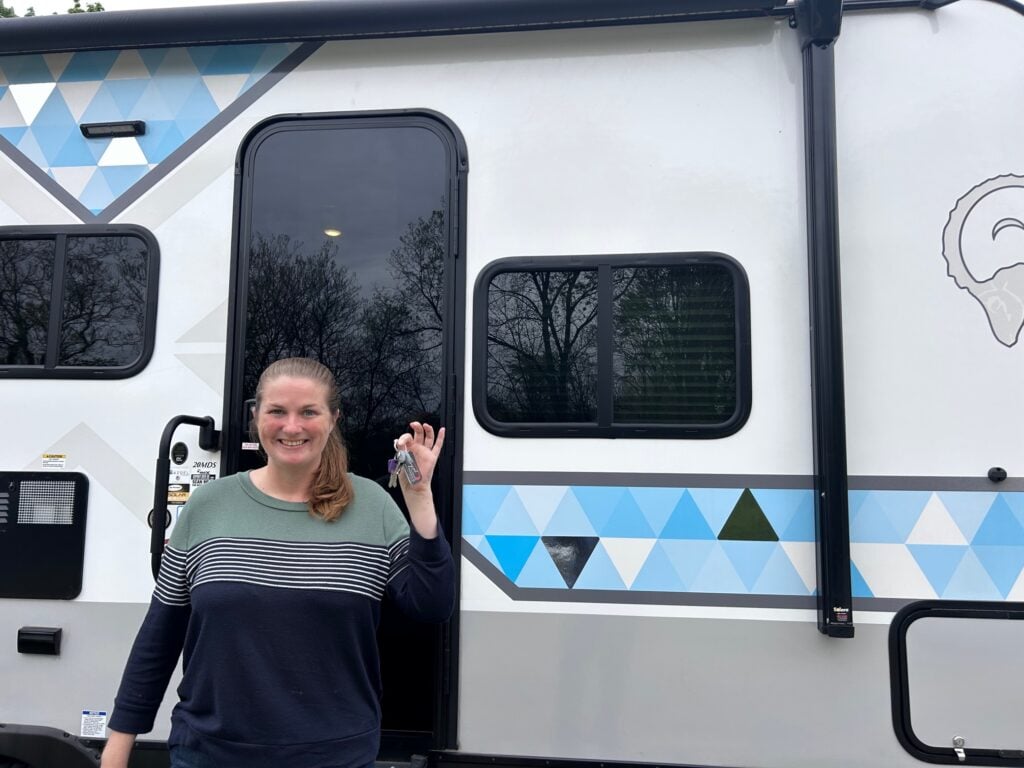
We highly recommend shopping across state lines when searching for your perfect RV. Shopping in multiple states gives you access to more inventory and allows you to compare prices more effectively. See our RV buying tips for more ways to get a great deal.
However, whether or not you should travel a significant distance to purchase an RV comes down to two deciding factors: money and availability.
First is money. If buying an RV in another state will cost you less money, then it is usually a great idea. However, you can’t just look at the price of the RV to determine if it will cost you less. Buyers who travel across state lines must also factor travel into their overall costs.
If an RV in another state is priced at $1000 less than similar RVs in your local area but travel will cost around $1000, then it is not worthwhile to buy the out-of-state RV. On the other hand, if the price difference is significantly more than travel expenses, traveling makes sense.
We recently traveled from Florida to Indiana to buy our travel trailer. The dealership in Indiana had the unit listed for $15,000 less than dealers in Florida, and the local dealers were only willing to drop the price by about $5000.
With a $10,000 difference in price, it was an easy decision. We drove to Indiana to buy our new RV. Since we are full-time RVers and were leaving Florida after the winter season, our only extra travel costs were fuel money to drive a few hundred miles off our planned route and one night in a hotel.
The other reason to buy an RV out of state is availability. Some used RV models are difficult to find and may not be available within your state. Travel may be required if your desired RV is rare or in high demand.
Considerations for Buying an RV in Another State
Here are some things to consider when deciding whether or not to buy an RV out of state.
Sales Tax Laws
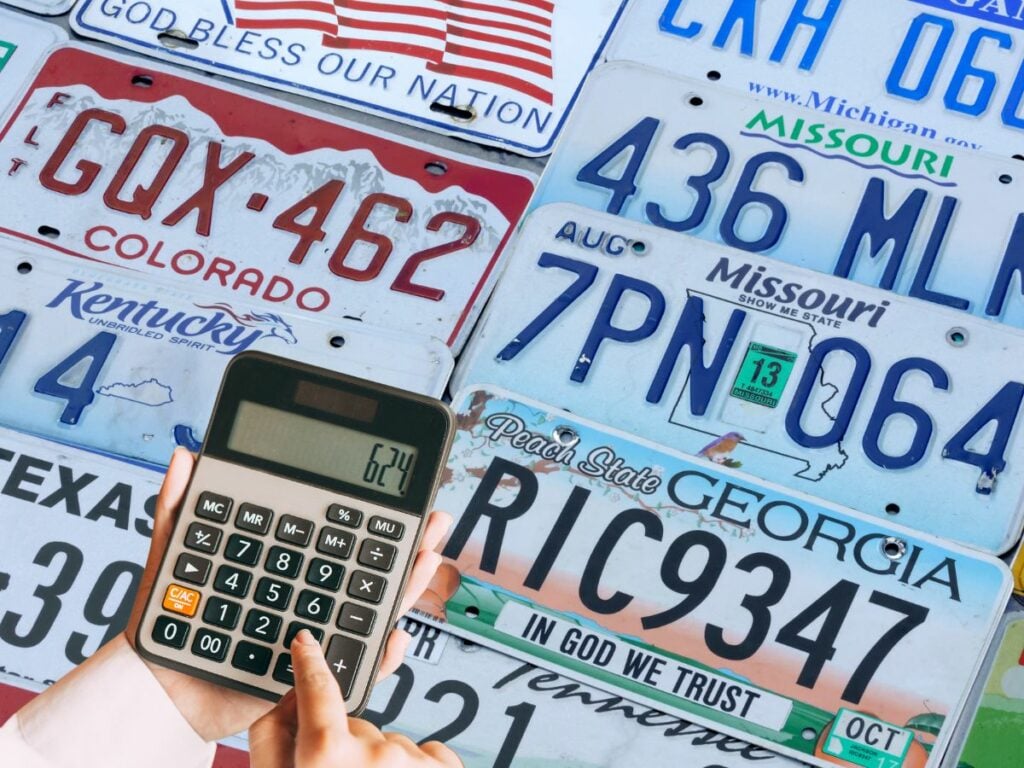
Many RV buyers mistakenly assume that avoiding sales tax is a reason to buy an RV in another state. Unfortunately, purchasing an RV in another state does not exempt you from paying local sales tax. Sales tax will be owed in the location where the vehicle is registered, regardless of where it was purchased.
Exactly how the process works depends on the two states in question. For example, buying our RV in Indiana we we paid sales tax in Indiana. Then, when we registered the vehicle in Florida we showed proof of sales tax paid.
Since the sales tax we paid in Indiana was less than what it would have been in Florida, we had to pay the difference at the time of registration. In other states, the dealer may not charge you any sales tax at the time of purchase, and you would pay the full sales tax at the time of registration.
Time and Travel
Other major considerations when deciding whether or not to purchase an RV out of state are time and travel expenses. As we noted in the previous section, buying an RV that is far away only makes sense if the price difference is larger than the travel expenses.
In addition to the money saved, RV buyers need to consider the value of their time. Will the out-of-state RV purchase require you to take time off work or inconvenience you in other ways?
Service Packages and Extended Warranties

The last consideration when buying an RV in another state is where your RV will be serviced. Most new RV buyers take their RV back to the dealership for regular maintenance and repairs. However, this is not feasible if you purchase from a dealership far from your home.
Most factory warranty work can be completed at any authorized dealership. However, a dealer who did not sell you the RV may not be as accommodating as one who did and your turnaround time on repairs may be longer than someone who purchased locally.
Make sure to research your local dealerships before purchasing out of state. Call the local dealer and ask about current wait times for warranty work.
Some extended warranties also require that work be performed at certain facilities. Instead of buying a dealership warranty from an out-of-state dealership, buy an extended warranty from a warranty company, such as Wholesale Warranties.
Our extended warranty, which we purchased from Wholesale Warranties, allows us to have work completed at any licensed repair facility or by a mobile mechanic. If you are new to extended RV warranties, ask these 5 questions before purchasing one.
Tips for Buying an RV in Another State
To prevent buying a lemon, miscalculating your expenses, or making other mistakes, follow these tips for buying an RV in another state.
Request a Video Walkthrough and Extra Photos
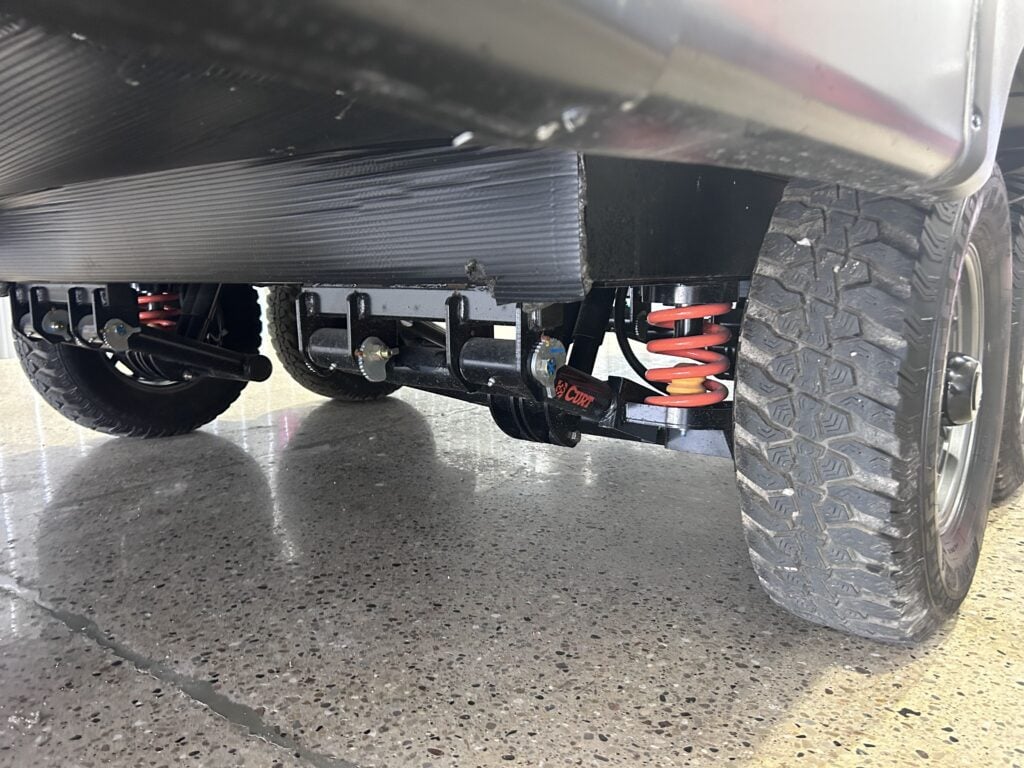
Before spending hundreds or thousands of dollars on travel expenses ensure the RV is the perfect fit for your family. Tour the RV (or similar models) in your local area and write down any questions or concerns.
Then request a full video walkthrough and additional photos from the seller. The roof and underbelly of the RV are two areas buyers need to see that are not usually photographed for online listings.
Hire an RV Inspector
If you still want to purchase the RV after receiving additional photos and videos, hire an RV inspector to conduct a complete evaluation of the RV. We always recommend having an inspection before purchasing a used RV.
When buying out of state inspecting new RVs is also a good idea. Just because an RV is new doesn’t mean it is problem-free. When shopping for our current travel trailer, we toured a brand new RV and found significant water damage in the walls and under the floor.
For out-of-state buyers, we recommend having the inspection done before you travel to the local area. That way you do not have to pay for travel expenses if the RV has serious issues. Find a certified RV inspector anywhere in the country on the NRVIA’s website.
Complete Negotiations Over the Phone
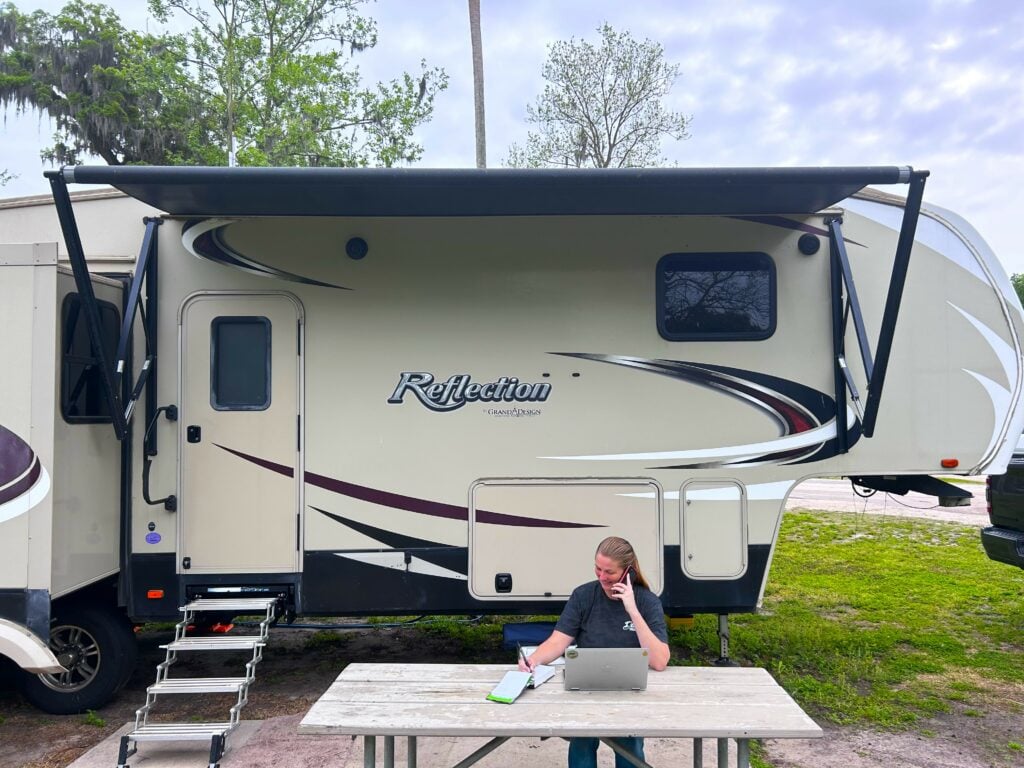
If you are still interested in the RV after the inspection, negotiate the price over the phone. Once you travel a long distance, the seller knows you are invested in buying the RV and they will have the upper hand in any negotiations.
Instead, let the dealership or seller know you are interested in the RV but still have some reservations. State your reservations and ask for a discount off the list price. For RVs being sold by a dealership, ask them to fix any issues identified in the inspection.
Consult your Local Registration Agency before Travel
Since registration requirements and the process for paying sales tax are different for every municipality, buyers need to contact their local DMV before purchasing an RV in another state.
Call or email your local DMV (or the agency where you will register your new RV) and ask for a list of paperwork required to register a vehicle purchased out of state. Also, confirm if you should pay any sales tax at the time of purchase.
Contact the seller before traveling to verify that they have all the necessary paperwork ready before you arrive.
Be Willing to Walk Away
Finally, no matter how prepared you are, it is always possible you will identify an issue with the seller or the RV once you arrive on location. Do not move forward with a purchase unless you feel 100% confident.
Happy Camping
Thanks for reading our guide to buying an RV in another state! Once you have your new RV, check out our list of essential RV gear.
Happy Camping!

Christina Pate is a seasoned full-time RVer who, along with her husband Justin, has journeyed across the US, Canada, and Mexico. Drawing from her extensive travels, RV repairs and RV renovations, she founded Travels with Ted to guide and inspire fellow RV enthusiasts. Christina is also the co-author of The Owner’s Guide to RV Maintenance and the creator of My RV Log Book.

